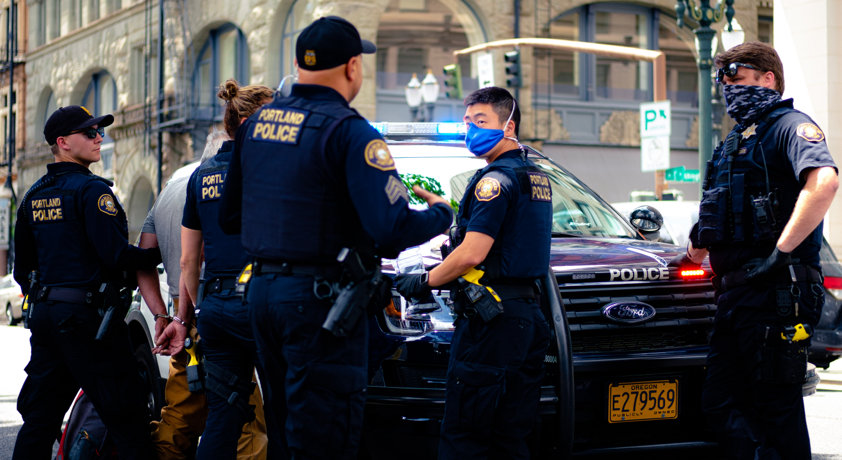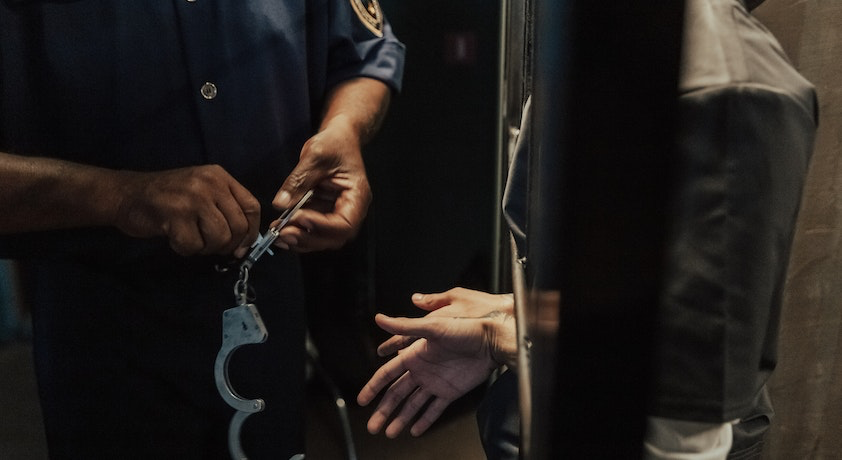The Benefits of Higher Education for Police Officers

Becoming a law enforcement professional is more competitive than ever. For this reason, higher education has become increasingly important for those wanting to enter the police force. Learn more about the benefits of a degree and what the different criminal justice degrees entail.
Reasons for Police Officers to Go Back to School
There are many reasons why law enforcement officers decide to go back to school to pursue higher education. Some are seeking promotion and want to improve their qualifications. And with more officers than ever coming to the hob holding an associate’s or bachelor’s degree, the field has become ever more competitive. Others choose to pursue a degree to prepare for an alternative career path.
Higher education is a vital part of continuing education for police, helping to build knowledge and skills that can improve and complement a law enforcement career. No matter what your reasons may be, when you seek higher education, take some time to consider what your career objectives are, and research what pairing of experience and education you will need to reach your goals and find success in your field.
The Benefits of a Degree
One of the most attractive reasons to pursue a higher education degree for law enforcement professionals is to improve your chances in an increasingly competitive field. You should not let this be your sole reason for pursuing education, however. There are many benefits that come with an associate’s, bachelor’s, or master’s degree which can enhance your overall ability to perform your job duties.
Increased Awareness and Understanding
Police work is a detailed and complex field of employment. Pursuing advanced studies in an applicable field can improve your overall awareness and understanding of the job. It can lead to a more advanced understanding of laws, procedures, theories, and concepts that will improve your ability to perform as a law enforcement officer. The more you know about concepts such as the law at federal, state, and local levels, civil rights, hate crimes, and current issues faced by public servants and law enforcement professionals, the better able you will be to relate to the public and function in your job.
Broaden Your Perspective
Attending classes at a college or university will expose you to many different kinds of people and points of view. It will, if you open your mind, broaden your perspectives and help you to view problems and ideas from different angles. Even if you don’t agree with some of the concepts and opinions you experience, hearing those opinions and arguments can help you better work out how you view the world, and how the people you deal with on a daily basis view it as well. This perspective will make you a more effective public servant and a better listener.
Improve Writing Skills
Most officers hate and dread paperwork. They consider themselves best serving in the field, out with the public, and wish they didn’t have to deal with complicated reports and the like. Worse, police paperwork tends to be very detail-oriented and one mistake can skew an investigation. You want to avoid these costly mistakes while making your paperwork less of a nightmare to complete.
Attending classes can help make paperwork less of a chore by improving your skills as a writer. Writing is a major part of most college majors, and the better you are able to improve and apply this tool, the more efficient you will be when you have to use that skill in the course of your job.
Networking Opportunities
Networking is very important in today’s job market, and even more so for a police officer. Whether you’re bucking for a promotion, looking to change jobs to a different agency or municipality, or just looking for information from a colleague in another department, the more people you know, the better off you are.
When you attend college you’re going to meet tons of people, many of whom will be in similar fields of work. From detectives to uniformed officers to lawyers and even judges, you may become acquainted with tons of new faces who will be in a position to help you (or whom you may be in a position to help) as your years in the field progress.
Opportunities for Promotion
When the time comes to advance your career, you want every edge possible. The job market across all sectors is incredibly tough and competitive these days. When your superiors are looking for someone to promote, they’ll certainly look at your job performance. They will also, however, look at whether you’ve improved yourself through continuing or higher education.
The more education you hold, the better you will look when opportunities for promotion come along. Holding a degree will certainly give you a leg up against the competition!
Education Pay Incentives
Did you know that more education often equates to higher pay? It’s true; even among officers at the same level as you, there may be those who get paid a bit more because they hold a degree from a college or university. These education pay incentives aren’t universal but do exist in many agencies at all levels from federal to state to local and municipal departments.
The more education you hold, the better you will look when opportunities for promotion come along. Holding a degree will certainly give you a leg up against the competition!
Majors That Satisfy Education Requirements
You don’t have to simply pursue a degree in criminal justice to enhance your career as a police officer, though for obvious reasons this is one of the more popular degrees among law enforcement professionals. There are many degrees that can improve and expand your skills, some of which can even lead you to higher-end jobs in national security if that’s where you want to go. Here are some of the most popular and useful associate’s, bachelor’s, and master’s degrees for law enforcement officials. Each links to a page with more information about the field of study, the requirements, top schools, the degrees available, and the career paths that the degree opens up.
The Importance of Accreditation
Before you pursue a degree of any kind, it is vital to do research about the institution you will be attending. The concept of accreditation is vital to making sure that your education and degree are valid and will actually help you. Organizations such as the Accrediting Council for Independent Colleges and Schools (ACICS) are authorized under the U.S. Department of Education and the Council for Higher Education Accreditation to determine whether or not a school meets certain education quality standards.
While accreditation is voluntary for schools, most agencies will only accept education from accredited institutions. Accreditation ensures that your educational institution has complied with rigorous educational standards, has a plan in place for effectiveness, is willing to endure yearly reviews of its policies, stability, placement, and student retention rates, and is subject to site visits at random times to ensure compliance with current standards.
In short, attending school at an accredited institution gives you peace of mind to know that you’re getting a strong education that is up to par and will enhance your abilities as an officer as well as be accepted by your agency for all of the benefits listed above.
Many online and technical schools are not accredited. Always look for ACICS, Department of Education, or Council for Higher Education accreditation when you choose your school.





